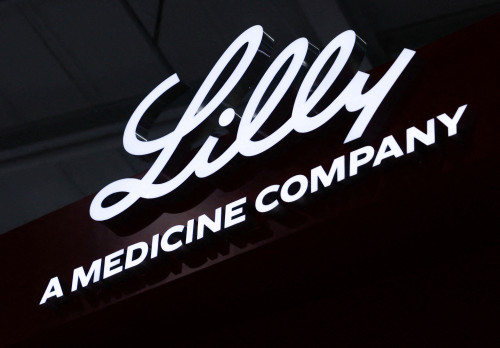By Jonathan Stempel
(Reuters) -A federal appeals court on Thursday rejected Eli Lilly’s appeal of an $183.7 million judgment won by a whistleblowing lawyer and pharmacist who accused the drugmaker of defrauding Medicaid.
The 7th U.S. Circuit Court of Appeals in Chicago said a federal jury reasonably found that Lilly knowingly concealed having retroactively increased prices on some drugs, and then failing to rebate Medicaid on the higher prices.
Circuit Judge Joshua Kolar said jurors heard “ample evidence” suggesting that Lilly “was aware of, or disregarded, an unjustifiable risk of skirting the law and chose to obfuscate rather than conduct a reasonable inquiry.”
The three-judge appeals court panel also rejected whistleblower Ronald Streck’s claim that the judgment should have been higher because the trial judge undercounted Lilly’s violations of the federal False Claims Act.
Jurors ordered Indianapolis-based Lilly to pay $61.23 million in August 2022, which the trial judge tripled to $183.7 million under the False Claims Act.
Neither Lilly nor its lawyer immediately responded to requests for comment. A lawyer for Streck had no immediate comment.
Lilly drugs include Mounjaro for patients with type 2 diabetes, and Zepbound for patients with obesity or obstructive sleep apnea.
Both won regulatory approval several years after the alleged Medicaid overcharges. Lilly also co-markets the type 2 diabetes drug Jardiance with Germany’s Boehringer Ingelheim.
LILLY ACTED ‘WITHOUT QUALIFICATION’ UNREASONABLY
From 2005 to 2017, Lilly required wholesalers to accept price increases on drugs they had already purchased from Lilly but had yet to resell to pharmacies.
Thus, if Lilly raised drug prices to $11 from $10, wholesalers would owe an extra $1 for drugs still in inventory.
Streck said Lilly should have reported the original and higher prices to the government, not just the original prices.
Lilly said service charges it paid the wholesalers offset the price increases, and it told regulators about its methodology several times and received no complaints.
Kolar nevertheless said it was “without qualification” unreasonable for Lilly to report only the original prices as its Average Manufacturer Price (AMP), in light of federal law and regulations and the terms of the Medicaid Drug Rebate Program.
“Because Lilly deprived the government of over $60 million, while amassing over $600 million in revenue from subsequent price increases during the relevant period, the jury reasonably concluded the false AMPs were material,” Kolar wrote.
“Even for a company of Lilly’s size, the numbers were large,” he added.
Lilly posted $8.42 billion of profit on $28.29 billion of revenue in the first half of 2025. Its revenue stream has more than doubled since 2017.
The False Claims Act lets whistleblowers sue on the government’s behalf, and share in recoveries.
The case is U.S. ex rel Streck v Eli Lilly and Co, 7th U.S. Circuit Court of Appeals, No. 23-2134.
(Reporting by Jonathan Stempel in New YorkEditing by Marguerita Choy)


